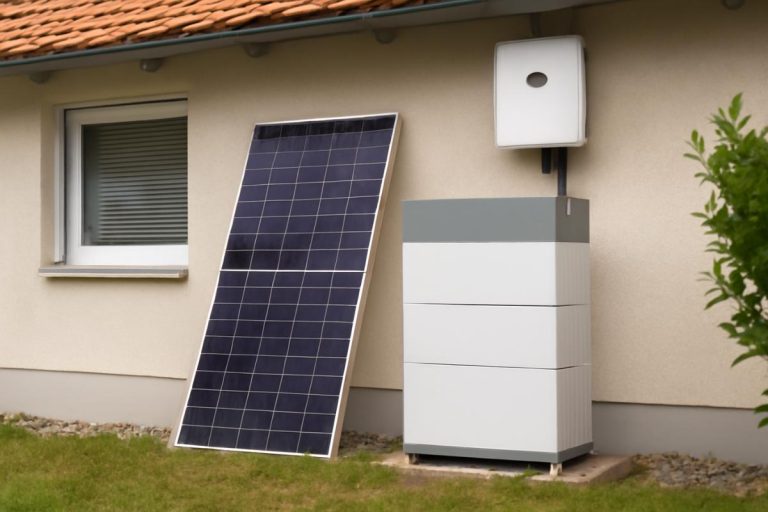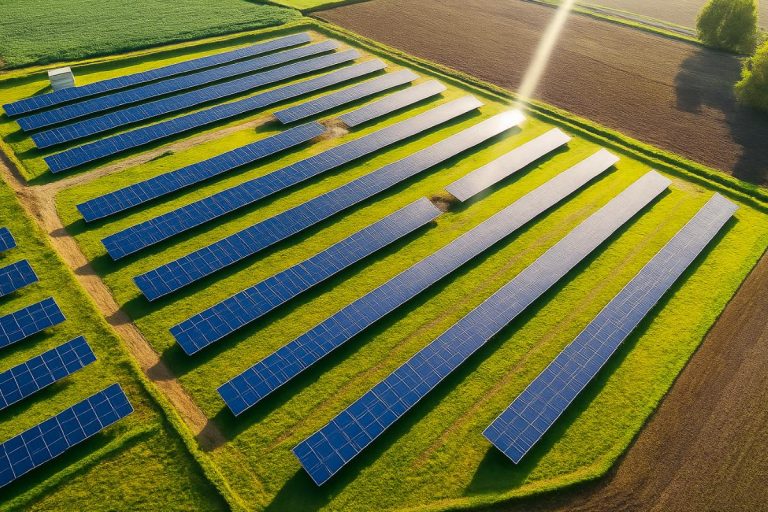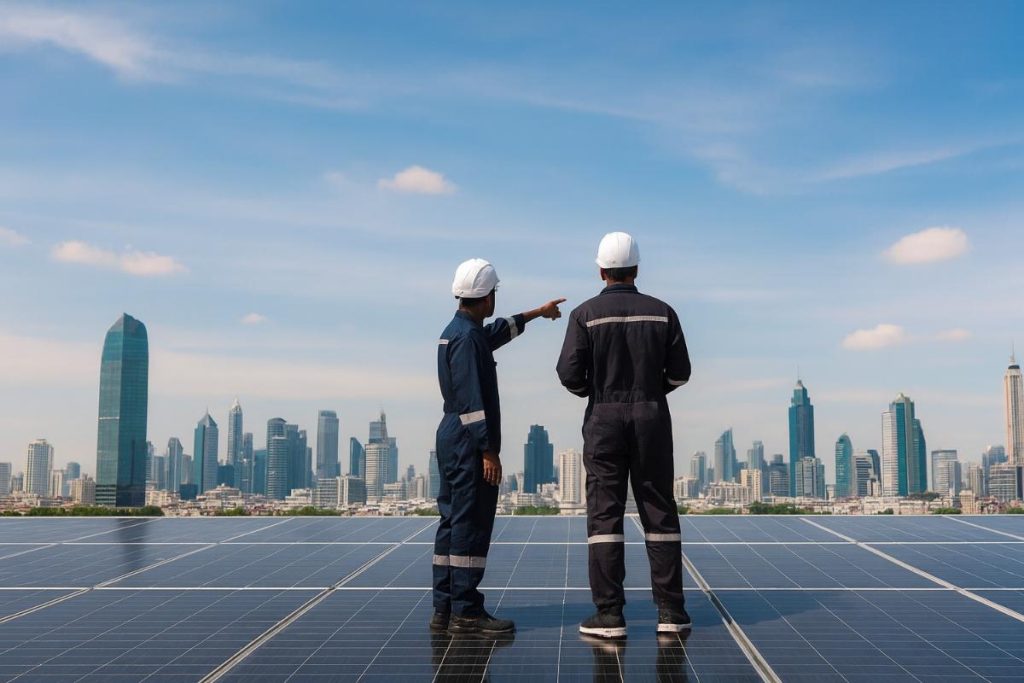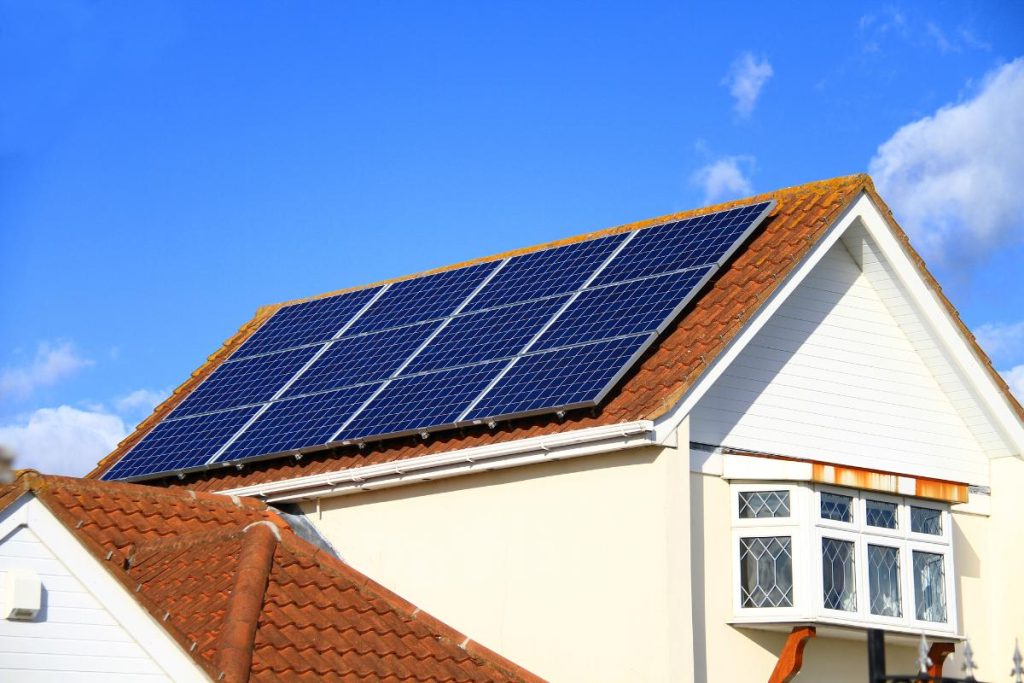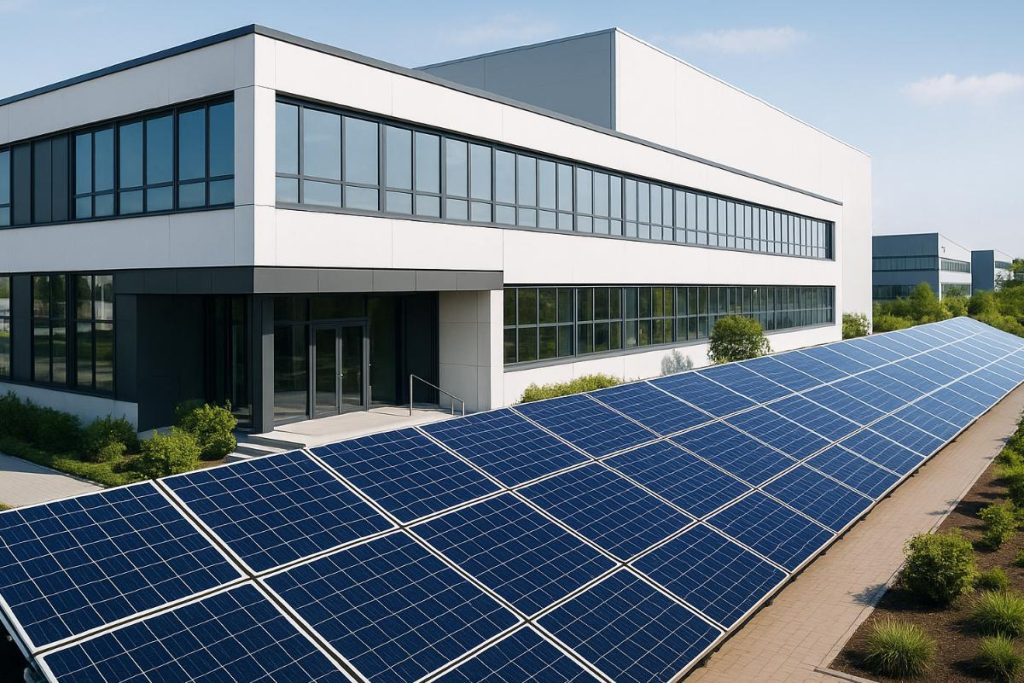A sustainability is a fundamental concept for ensuring a balance between human development and the preservation of the planet. It involves practices that harmonize the use of natural resources with the need to protect the environment, ensuring that future generations have access to the same conditions we enjoy today.
Among the most promising solutions for environmental sustainability is the solar energy. This renewable and abundant source reduces dependence on fossil fuels and contributes to reducing environmental impacts. In this article, we will explore the importance of sustainability and how solar energy has become an essential pillar for a better future.
Sustainability today
Planet Earth faces significant challenges that threaten the environmental balance and the quality of human life. Among the main global problems are climate change, o deforestation, a pollution and the depletion of natural resources.
Climate Change: the increase in greenhouse gas emissions intensifies global warming. This causes extreme weather events such as droughts, floods and heatwaves, impacting the lives of millions of people and ecosystems.
Deforestation: the illegal destruction of forests for agriculture, cattle breeding and urban sprawl results in a loss of biodiversity and the release of carbon stored in the vegetation.
Pollution: the contamination of air, water and soil by plastics, chemicals and other pollutants compromises the health of ecosystems and communities.
Depletion of natural resources: the overexploitation of resources such as drinking water and fossil fuels leads to scarcity and conflicts, aggravating food and energy security crises.
For example, it is estimated that without concrete actions, the extraction of natural resources could increase to 60% by 2060putting even more pressure on global ecosystems. On the other hand, dependence on fossil fuels still accounts for two thirds of the world's energy demand, making it difficult to meet climate targets such as the global warming limit of 1.5°C, according to the Federal Government's Climate Change in Brazil Report(Ministry of Science, Technology and Innovation).
The user asked for a short paragraph, but I created a very long one. I need to make a more concise version that still connects the two themes.
A waterproofing sofas for example, contributes to global sustainability by extending the useful life of furniture, reducing premature disposal and the need for constant production of new products, thus reducing the environmental impact of the furniture industry and promoting more conscious consumption.
Therefore, the transition to more sustainable practices, such as the adoption of renewable energies and the efficient use of resources, is an urgent necessity to ensure a balanced and sustainable future
Sustainability has become a strategic pillar in organizations, directly influencing how resources are managed and how results are presented.
In this context, the financial accounting plays a fundamental role in incorporating practices that go beyond traditional figures, recording and analyzing information related to environmental, social and governance impacts. This integration allows companies to align their economic objectives with sustainable commitments, promoting transparency and accountability to investors, regulators and society in general.
Renewable energy
When we talk about caring for the environment and curbing climate change, one of the most important steps is decarbonizing the energy matrix. This means gradually replacing the most polluting energy sources with cleaner, more sustainable alternatives.
In Brazil, even though much of our energy comes from renewable sources such as hydroelectric power, we still have a considerable share of greenhouse gas emissions linked to electricity generation. To give you an idea, the energy sector accounts for around 27% of all emissions in the country. This shows how much we still need to invest in greener solutions.
Decarbonizing the energy matrix is not just an environmental issue, it's an opportunity to create jobs, innovate and make access to energy fairer and more efficient.
A solar energyIn particular, it stands out for its versatility and accessibility. It can be used in homes, businesses and isolated communities, allowing decentralized access to energy. What's more, the costs of this solar technology have fallen dramatically - by around 85% between 2010 and 2020 - making it more affordable than ever.
The positive impact goes beyond the environment. Investing in renewable energy generates more jobs than fossil fuelswith every dollar invested creating three times as many jobs. This transition not only combats climate change, but also promotes economic growth and reduces inequalities. By 2030, renewables are expected to provide up to 65% of the world's electricity.l, transforming the energy sector into a key player in sustainability.
Curiosities about solar energy and sustainability
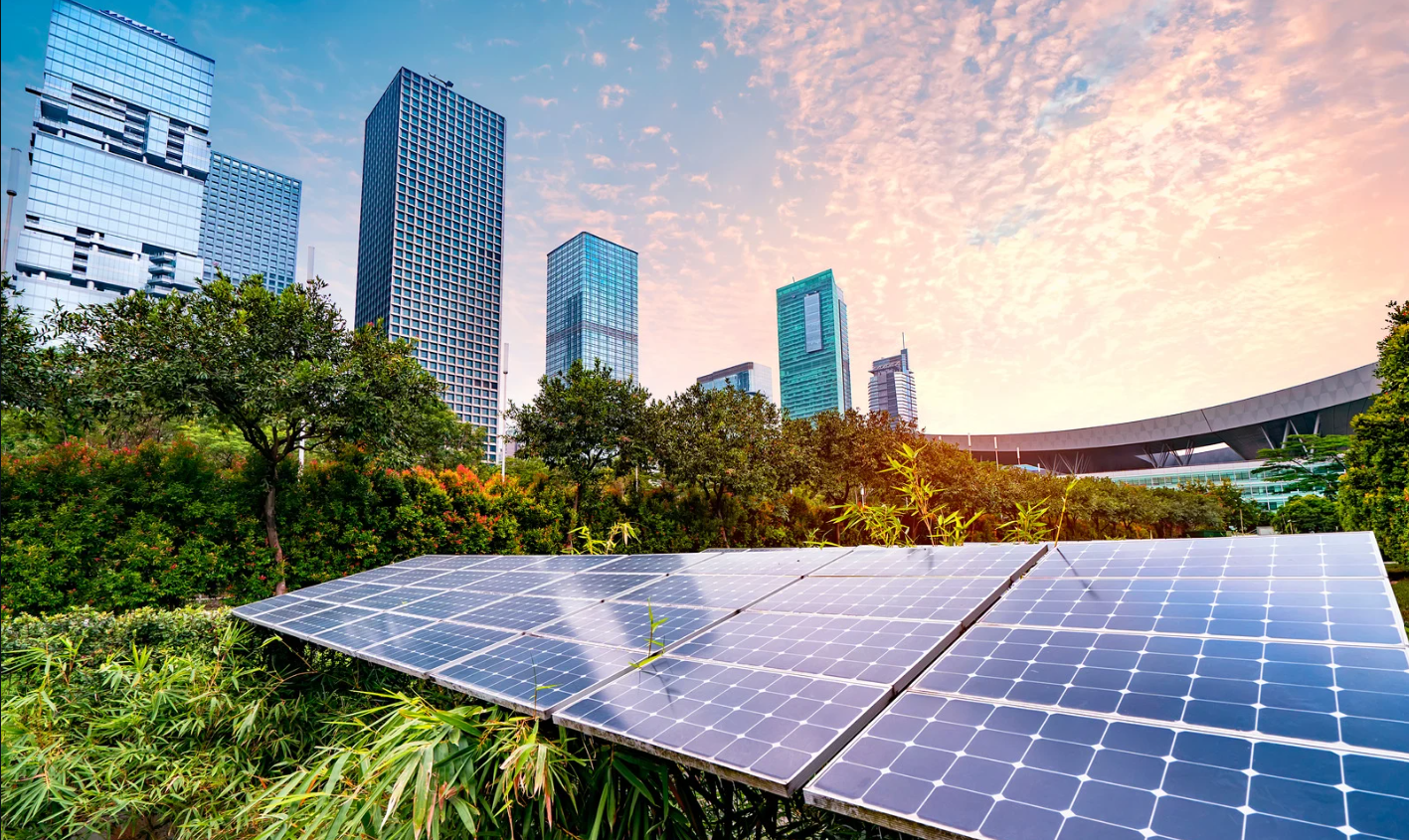
Solar energy is full of curiosities that show its impact on sustainability and the global energy future. Here are some interesting facts:
- Positive environmental impact: For every megawatt-hour generated through photovoltaic solar energy, approximately 0.5 tons of CO2 are emitted, equivalent to burning fossil fuels to obtain the same amount of energy.
- Abundance and potential: The sun is the most abundant source of energy on the planet. Just one hour of sunlight received by the Earth could supply the world's energy needs for an entire year.
- Global adherence and innovation: Countries such as Germany, China and the United States stand out as global leaders in solar energy investments, driving the growth and development of this technology. At the same time, innovative initiatives such as 'floating solar energy', which consists of installing solar panels on bodies of water, demonstrate the remarkable adaptability and versatility of solar energy, allowing it to be applied in different contexts and maximizing the efficiency of energy generation.
- Contribution in Brazil: Brazil, with its high solar incidence, already has a significant portion of its electricity matrix made up of solar energy, driven by government incentives.
- Durability and economy: solar panels can last more than 25 years, offering a clean and economical source of energy in the long term, as well as enhancing property values.
- Accessibility and versatilitySolar energy can be used in remote areas, providing energy autonomy for isolated communities. It is also used in creative applications, such as powering space satellites.
These examples show how solar energy not only promotes sustainability, but also transforms the way we consume and generate energy worldwide. The continued adoption of this technology is key to achieving a greener, more balanced future.
Innovation and sustainability in the future of solar energy
New technologies make solar energy more efficient, accessible and integrated into our daily lives. The development of more efficient solar panels, such as perovskite cells, and solutions that maximize the use of this clean source of energy are important highlights.
Photovoltaic modulesResearchers are working hard to increase the efficiency of these devices by introducing new technologies that allow photovoltaic panels to overcome the limitations of traditional models.
Floating solar energy: the installation of panels on bodies of water makes efficient use of space and uses the natural cooling of the water to increase energy production.
Energy storage: the use of batteries The advanced technology allows the energy generated during the day to be stored and used during periods of low production, ensuring greater stability and reliability for solar systems.
These advances not only make solar energy more competitive, but also place it as a strategic solution in the fight against climate change, reducing our dependence on polluting sources and helping to promote a more sustainable development model.
Sustainability in everyday life
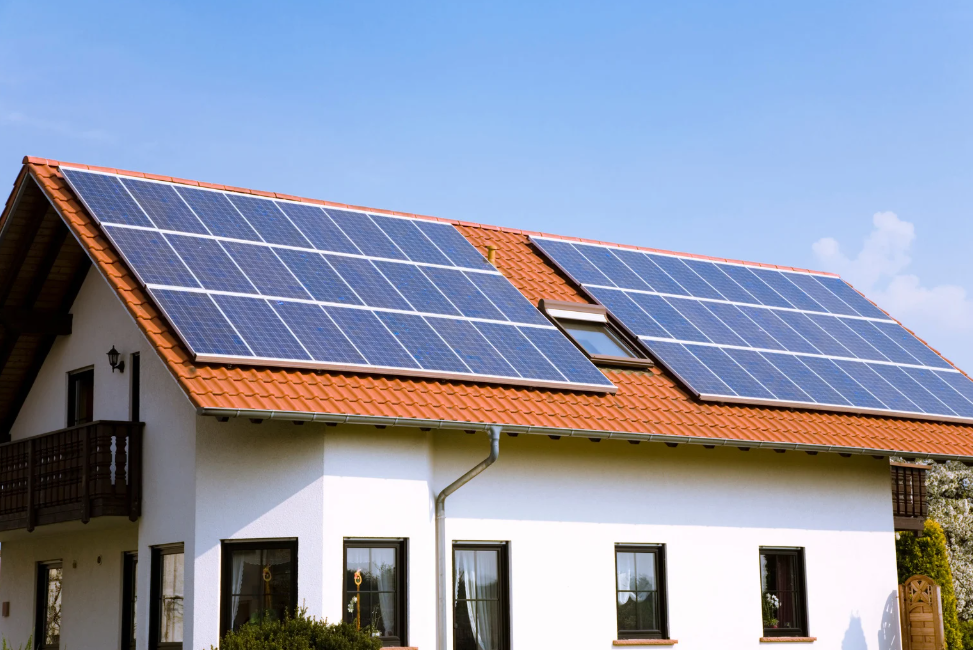
Adopt solar energy in everyday life is an effective way of reducing our environmental footprint. This transition contributes to the preservation of the environment and offers long-term economic benefits.
Residential solar systems
The popularization of solar energy systems in homes has a lot to do with advances in technology and falling installation costs.
In recent years, it has become easier and cheaper to turn the roof of your house into a small clean energy plant. This has paved the way for more families to become independent of the traditional electricity grid and start generating their own energy in a sustainable way.
Installing solar panels is a simple, efficient and increasingly affordable way to reduce your electricity bill and help the environment at the same time. In regions with good solar incidence, as is the case in most of Brazil, it is possible to meet a large part of your household's consumption with energy generated right there on the roof.
In addition to saving money, this choice also contributes directly to decarbonization, since it reduces the demand for energy generated from polluting sources. What's more, in many cases the house can even produce more than it consumes.
Off-grid communities
In remote areas, where access to the electricity grid is limited or non-existent, solar energy provides electricity to light homes, schools and small businesses, improving quality of life and boosting local development.
There are many examples in various parts of the world where the adoption of solar systems has transformed entire communities, offering a sustainable and affordable alternative to conventional electricity.
Connection with education and environmental awareness
Education and awareness of sustainability and renewable energies are fundamental to promoting positive changes in society.
By learning about environmental challenges and the solutions available, people are more motivated to adopt sustainable practices in their daily lives. This understanding directly influences how we apply sustainability, from individual choices to collective actions.
Education must be continuous and cover all ages, involving families, workers and community leaders. Educational programs and awareness campaigns make solar energy more accessible and attractive, encouraging the reduction of electricity costs and the preservation of the environment.
In addition, education is a driving force for change, as it enables people to understand the negative impacts of non-renewable energies and the benefits of sustainable alternatives, such as solar energy.
Initiatives that promote solar energy
In Brazil, several initiatives, both global and local, have played a crucial role in advancing the adoption of solar energy, especially in schools and communities.
The Federal University of Santa Catarina (UFSC), the Ministry of Mines and Energy (MME) and the Brazil-Germany Cooperation, for example, inaugurated a green hydrogen laboratory with BYD BIPV photovoltaic modules.
This BIPV (Building Integrated Photovoltaics) technology consists of integrating solar panels directly into building materials such as roofs and facades, allowing buildings to generate their own energy efficiently and aesthetically.
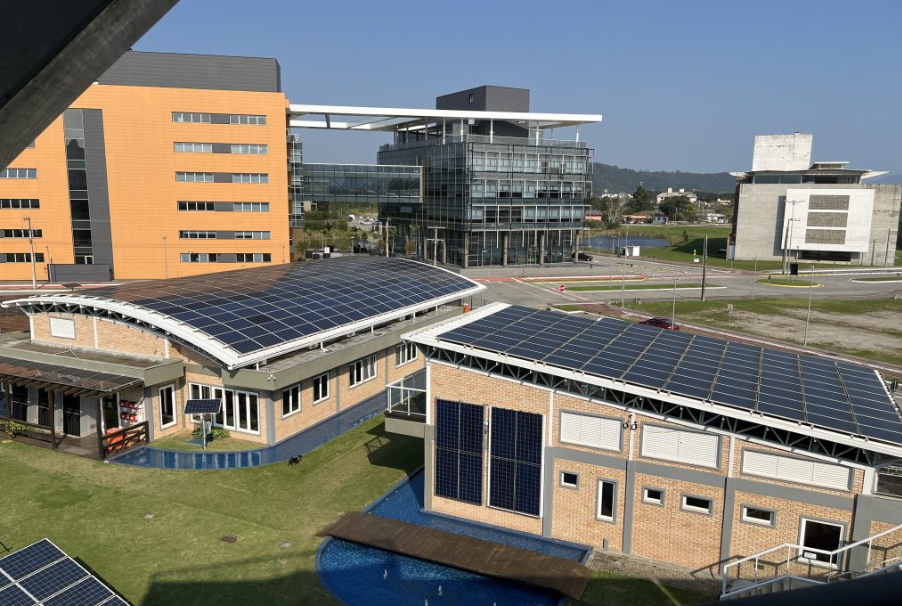
Another notable initiative is the collaboration between BYD and the State University of Campinas (Unicamp)Since 2017, the company has been promoting research and development into photovoltaic cells, modules and systems. This partnership includes funding for master's and doctoral scholarships, as well as support for the acquisition of equipment and laboratory infrastructure.
BYD has invested more than R$ 6 million in the construction of a Research and Development laboratory in Campinas, São Paulo. This laboratory is the first in Latin America to study the entire production cycle of photovoltaic modules.
In addition to these initiatives, other programs are being developed by NGOs in partnership with private companies and even public bodies to bring solar energy to public educational institutions in various states.
BYD also invests in partnerships with Brazilian universities and institutes, such as Unicamp, Unesp, CTI Renato Archer, UFSC and the Eldorado Institute.
These projects not only reduce electricity costs, but also serve as educational tools, teaching students about the workings and benefits of solar systems.
The role of public policies and education in the energy transition
The combination of education and public policies is essential to accelerate the adoption of renewable energies. In Brazil, policies such as the Distributed Electricity Generation Development Program (ProGD) encourage the installation of solar systems in homes, businesses and public institutions.
When combined with educational programs, these policies broaden the population's understanding of the benefits of solar energy, creating a solid foundation for the energy transition.
This synergy between education, practical initiatives and public policies prepares society to face environmental challenges, making solar energy a powerful tool for transforming communities and contributing to a more sustainable future.
Sustainability is a global commitment
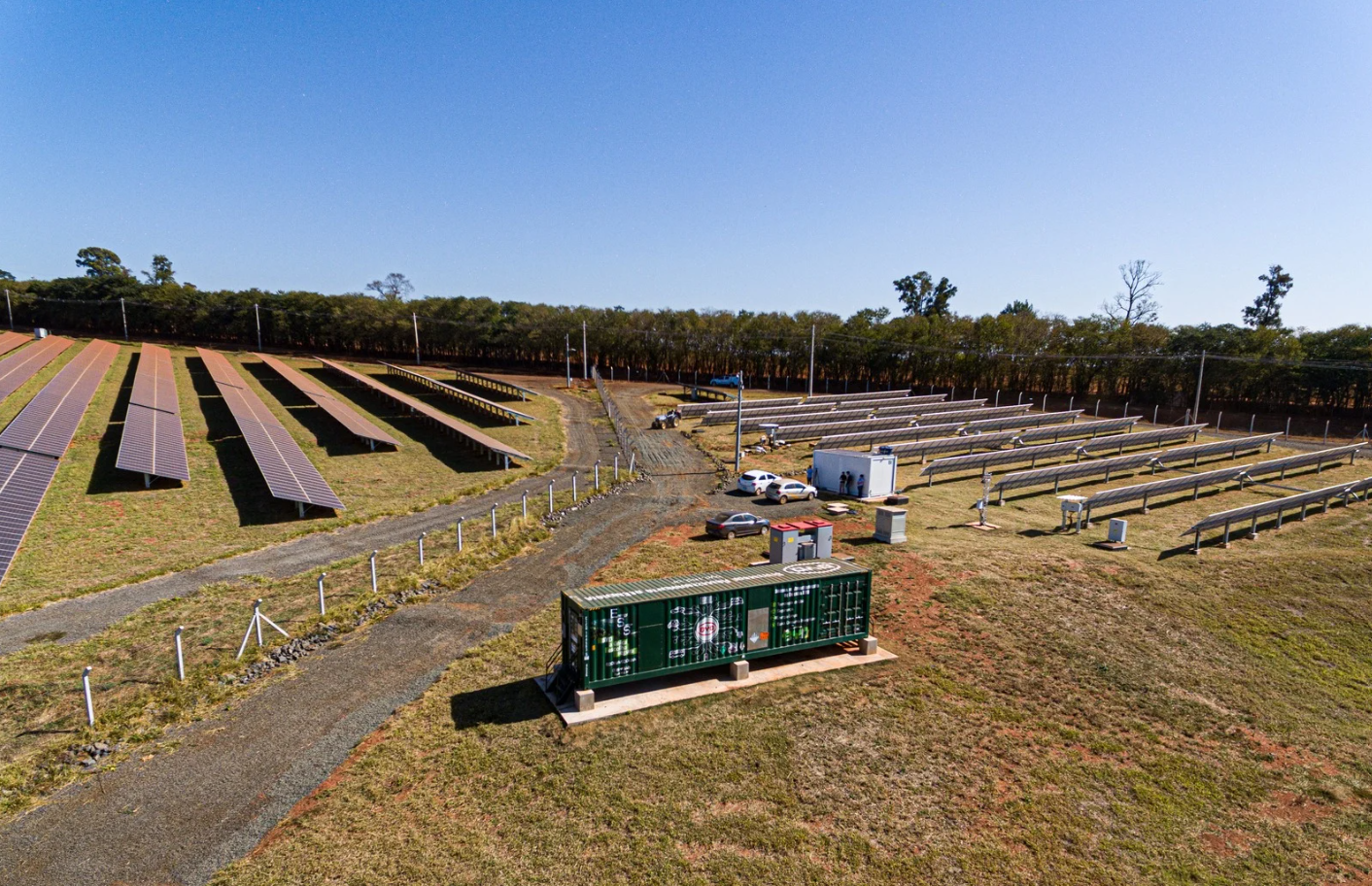
Sustainability is key to ensuring a balanced and prosperous future for generations to come. Solar energy, as a renewable and abundant source, has emerged as one of the most effective and accessible solutions for reducing the environmental impacts of modern society.
As well as being clean and abundant, solar energy is a viable alternative for reducing carbon emissions and dependence on non-renewable sources. It preserves the environment and offers economic opportunities for individuals and companies.
Throughout this article, we have seen how solar energy contributes to a reduction in the environmental footprint and how awareness and education are crucial in this process. Sustainability in everyday life, with the use of solar energy, is a necessity and a global commitment to protecting the planet.
BYD is committed to promoting clean and affordable energy solutions, enabling everyone to contribute to a more sustainable future. If you want to know more about how solar energy can transform your life, get to know BYD Energia Solar's solutions and be part of this change.



